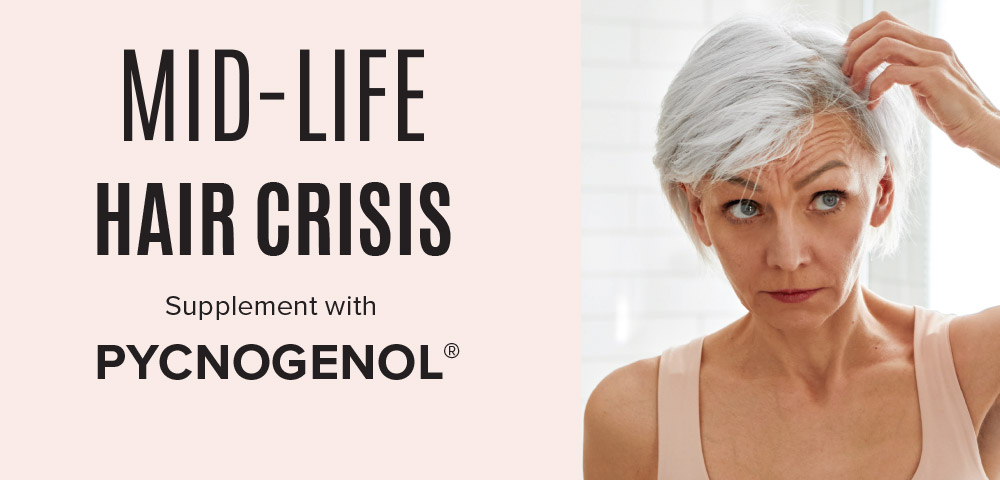
"A good stylist is cheaper than a good therapist" - is a mantra for many women who experience changes in hair health.
Healthy hair is desirable from a beauty perspective. From a naturopathic one, it can also signify inner health. FPHL is the general diffuse hair thinning over the central scalp that tends to increase with age. Many factors can impact this hair loss, including stress, nutrient status, age, climate, and hormonal changes associated with menopause.
Very few natural or pharmaceutical options are available for FPHL, which is why understanding the cause is extremely important to target treatment. A recent study has shed some light on how hormonal changes during menopause affect hair growth rate, hair diameter, diameter distribution, and overall hair density.
In the randomized, double-blind, placebo-controlled study, a proprietary bark extract from the French maritime pine tree, called Pycnogenol, was shown to increase hair density in menopausal women by up to 30% compared to placebo. This impressive result is likely because of Pycnogenol’s antioxidant and anti-inflammatory activities, and its ability to improve microcirculation, which may be impacted during hormonal changes in women.
Hair “dos” for your hairdo
- Consider taking a Pycnogenol supplement to support microcirculation in the scalp if you are going through hormonal changes
- Take your multivitamin to help prevent nutrient deficiencies that can lead to hair loss and thinning – make sure it contains biotin and a full spectrum of minerals
- Consume sufficient protein – aim for 1 g per kg of your body weight per day
- Nourish and support your hair follicles with omega-3 fatty acids and collagen












